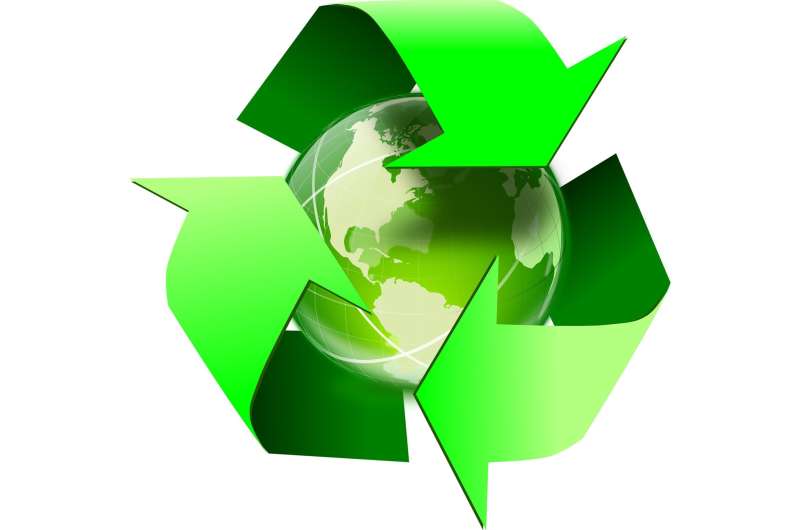This article has been reviewed according to Science X's editorial process and policies. Editors have highlighted the following attributes while ensuring the content's credibility:
fact-checked
proofread
New position paper on transparent life cycle assessment of plastics recycling

Life cycle assessments are often used as a basis for decision-making when selecting environmentally friendly processes, input materials or services for plastics recycling. But what does a comparable and transparent ecological assessment that meets different requirements look like?
Fraunhofer CCPE researchers have identified 10 challenges and 10 requirements in their position paper that increase comparability and transparency in the ecological assessment of plastics recycling.
Life cycle assessment studies not only allow products and services to be evaluated over their entire life cycle, they can also be used to compare different recycling processes and recycled plastic with virgin material. The results serve as a basis for decision-making when selecting the options with the lowest environmental impact.
The basic comparative variable in every LCA is the functional unit. All environmental impacts are related to this parameter. However, the recycling of plastics always fulfills several functions, such as the proper treatment of waste and the provision of new resources for further products. There has long been no consensus on how to deal with this multifunctionality in the life cycle assessment of recycling.
Exchange required between science, industry and politics
With their recently published position paper, "Challenges and requirements in comparative life cycle assessment of plastics recycling," the Fraunhofer CCPE researchers aim to clarify precisely these challenges and requirements that exist in the assessment and comparison of plastics recycling activities.
The focus here is on the distinction between the functionalities of waste treatment and material provision. "With the position paper, we want to open up space for an open and transparent exchange between science, industry and politics in order to make decisions based on the ecological comparison comprehensible and resilient," says Anna Kerps, initiator of the position paper and research associate at Fraunhofer CCPE.
The authors point out that comparative life cycle assessments also depend on various boundary conditions and assumptions. Checking for logical inconsistencies in the assumptions is a key requirement for meaningful comparisons. Inconsistent life cycle assessment studies often lead to misinterpretations.
They see further challenges in dealing with the different technology routes and scales as well as the complexity of recycling routes for mixed waste. Different waste origins and collected contaminants influence the quality of the recyclates—and must be taken into account in the balance.
More information: Challenges and requirements in comparative life cycle assessment of plastics recycling. www.ccpe.fraunhofer.de/content … on-paper-LCA-web.pdf


















